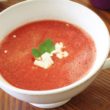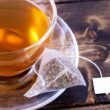Melatonin is a hormone produced by a very small structure situated in the brain called the pineal gland. The primary chore of this hormone is to regulate your wake and sleep cycles, which only means that you require it in obtaining a restful and rejuvenating sleep each and every night.
Unfortunately, there are a number of things that can cause the levels of melatonin your pineal gland produces to drop. Graveyard shifts, late night partying, alcohol, caffeine, stress, blue light exposure and aging can considerably diminish the amount of melatonin in your body, thus making it hard for you to obtain a good night’s sleep.
It’s a good thing that there are tons and tons of melatonin supplements out there for people who are battling insomnia as well as those who cannot seem to enjoy good quality sleep. But aside from spending money on those supplements, you may also increase your levels of melatonin through natural means.
Exercise on a Regular Basis
Numerous studies have shown that individuals who exercised on a regular basis had higher levels of melatonin in their bodies, thus making it so much easier for them to steer clear of bouts of insomnia. However, refrain from exercising a few hours before you intend to hit the hay as it can leave you wide awake at night.
Get Enough Sun Daily
Some of the best exercises to go for are those that you can perform under the sun if you want your melatonin levels to be boosted. As a bonus, it’s also something that can help lift your mood — depression and anxiety can contribute to insomnia. Just try to avoid the sun between 10 in the morning and 4 in the afternoon to avoid complications.
Limit Exposure to Blue Light at Night
A few hours before bedtime, it’s a good idea for you to stay away from anything that gives off blue light such as your laptop and smart phone. If you cannot avoid tinkering with your prized gadgets, then reduce the brightness or install a program or an app that filters blue light, making the display appear warm.
Dodge Caffeine and Alcohol
Certainly, the consumption of anything with caffeine in it like coffee and soda can make it difficult for you to catch some Z’s at night. The same is true with alcohol — even though consuming alcoholic beverages can make you fall asleep, the fact is the kind of sleep you get to have is not restful, thus you wake up feeling tired the next day.
Consume Foods That Contain Melatonin
Are you aware that there are lots of foods that have melatonin in them? Needless to say, including them in your diet can help you attain a good night’s sleep without trouble. These melatonin-containing foods include bananas, oranges, pineapples, tart cherries, turkey and chicken.
Reduce Your Stress Levels
Prior to catching some shut-eye, you should engage in something that can help lower your stress levels. Once you achieve such, an increase in melatonin levels will follow suit. So at the end of your day, you may listen to soothing music, write in your journal, take a relaxing bath, meditate — anything that can help relax both your mind and body.
Try Taking Melanin-Boosting Herbs
Experts say that there are actually a number of herbs that can help increase the amount of melatonin your pineal gland makes. Some of them include chamomile, passionflower, catnip, valerian and St. John’s wort. But just like when planning on taking any herbal supplement, it’s a good idea to let you doctor know about it first.
Don’t forget to share this article on social media to let everyone know how to have their melatonin levels increased sans popping a supplement in the mouth.












